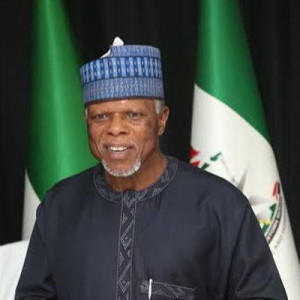Despite assurances by the Comptroller General of Customs, Hameed Ali that the Nigeria Customs Service (NCS) will acquire and install functional scanners at the nation’s seaports and border stations before the end of the first quarter of 2017, investigations by SHIPS & PORTS DAILY has revealed that this may not happen.
“We have problems with the scanners because most of them are not working. We are working diligently to replace them. By God’s grace by the end of this first quarter, we will have scanners at our ports,” Ali had declared in Lagos in January.
But findings reveal that it takes between eight and twelve months from when order is placed for any buyer to take delivery of scanning machines in any part of the world. This is because scanners are not acquired off the shelf. They are built by the manufacturers on order and specifications.
Sources revealed that while the Nigeria Customs Service has made enquiries about the cost of acquiring scanners from lead manufacturers including RapiScan Systems and American Science & Engineering (AS&E), it has not placed any orders with any of the companies yet.
“The management actually plans to acquire 10 new scanners to replace existing ones. The idea is to deploy two scanners each at Apapa at Tin Can ports and one each at the other four ports – Rivers, Calabar, Onne and Warri. One scanner will also be deployed at the Lagos Airport and the other at Seme border,” a senior Customs officer who does not want his identity disclosed because he was not authorised to speak on the matter told SHIPS & PORTS DAILY on Friday.
“The problem however is the procurement process. It is tough getting not only the approval but also navigating due process is one mighty constraint facing us at this time,” the source added.
Industry stakeholders have also accused the Federal Ministry of Finance of not showing enough support for Customs and commitment in acquiring the scanners, which is expected to cost about $100million (about N30.5 billion). The project is not even listed in the 2017 Customs budget.
A former senior Customs officer who craved anonymity said lack of commitment and bureaucracy in government are major reasons why the Finance Ministry has failed to assist the NCS get functional scanners to aid cargo clearance at the nation’s seaports.
“The delay in procuring new scanners is a matter of government bureaucracy. All these issues should have been concluded before now because scanners are very important in cargo clearance. Replacement of scanners has been there for a long time.
“If government deems it fit, they should not look back or even take a second thought in replacing these scanners. In their wisdom, they know why they are delaying the replacement of these scanners up till now. It is very important government consider the scanners and act swiftly, why the delay? Attention should be given to the most deserving area,” he said.
“We anticipated what is happening right now because we know with the exit of the providers, that government bureaucracy will set in. We saw this coming. You can’t expect the same result when the service providers were managing it with government bureaucracy in place in the management of the scanners. It is not possible,” he said.
Acting Public Relations officer of Customs, Joseph Attah declined comments on whether the Service had placed order for the scanners or not.
“Efforts are on to provide functional scanners that will help us do our job more efficiently. The CG has been engaging relevant authority to make sure that not too long from now, we are provided with scanners,” he said.
Meanwhile, President, National Council of Managing Directors of Licensed Customs Agents (NCMDLCA) Lucky Amiwero has advised that rather than buy new scanners, the government should set up a committee to investigate why the scanners at the ports are not working.
“A committee should sit down and look at what happened to those scanners. It is not a matter of procuring new ones. The Minister of Finance and the Customs Comptroller General are making very serious mistakes of saying they want to get new scanners. How can they say they want to go and get new scanners when we have scanners at the port? They should be repaired because they are not old scanners.
“The best thing the government could do is to bring in expert to look at what happened to the scanners and audit the scanners. Let us look at the state of the scanners and know what happen to them. Why do we have a failure of transfer? Is it Customs or Ministry of Finance that failed in the transfer? Somebody must be held responsible. What were transferred to Customs must be functional and durable scanners,” he told SHIPS & PORTS DAILY.
Rapiscan Systems, based in Torrance, California and (AS&E), with headquarters in Billerica, Massachusetts have not responded to enquiries sent to them by SHIPS & PORTS DAILY.
Copyright 2016 Ships & Ports Ltd. Permission to use quotations from this article is granted subject to appropriate credit given to www.shipsandports.com.ng as the source.
